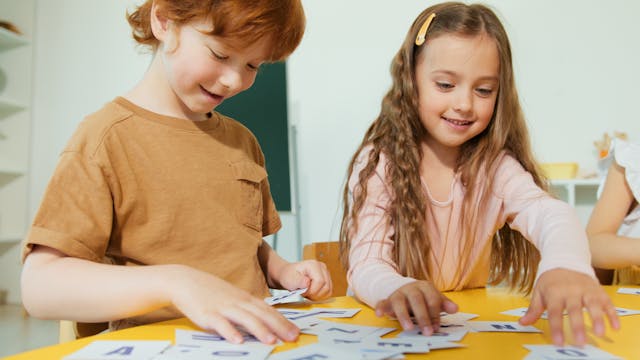
Are Flashcards And Worksheets An Effective Way To Learn?
In a world teeming with apps, gamified platforms, and AI tutors, two humble tools still dominate classrooms, tutoring sessions, and study desks across the globe: flashcards and worksheets. But do these traditional tools still hold educational value in the 21st century? I’ve teamed up with an international school in Switzerland to dive into the science, psychology, and practical effectiveness of flashcards and worksheets as learning tools.
The Case for Flashcards: Active Recall and Spaced Repetition
Flashcards have long been favoured for their simplicity and versatility. Whether physical or digital, they engage learners through active recall, a powerful cognitive process where the learner retrieves information from memory without cues. Research consistently shows that this method strengthens neural connections, making information more retrievable in the future.
When paired with spaced repetition—a technique that introduces increasing intervals between review sessions—flashcards become a powerhouse for long-term memory retention. Apps like Anki and Quizlet leverage this method to great effect, especially for language learners, medical students, and anyone studying large volumes of factual information.
Pros:
- Ideal for memorising vocabulary, formulas, and key facts.
- Encourages self-testing and metacognitive awareness.
- Easily adaptable for self-paced learning.
Cons:
- Less effective for complex conceptual learning.
- Risk of rote memorisation without understanding.
The Role of Worksheets: Practice Makes Permanent
Worksheets provide structured opportunities to apply concepts, work through problems, and reinforce lessons. They are especially effective for subjects like math, grammar, and science where procedural fluency and repetition build mastery.
Unlike flashcards, which emphasise recall, worksheets emphasise application. They often guide students through logical steps, helping them identify patterns and internalise problem-solving processes.
Pros:
- Reinforce skills through repetition and pattern recognition.
- Encourage independent work and responsibility.
- Useful for diagnostic and formative assessment.
Cons:
- Can become monotonous if overused or poorly designed.
- Passive completion (filling in answers without engagement) limits effectiveness.
Flashcards vs. Worksheets: Which Is Better?
This isn’t a competition—it’s about complementary tools. Flashcards excel at helping students memorise and retrieve discrete bits of information. Worksheets are better for practicing how to use that information in context.
For example:
- A student might use flashcards to memorise the quadratic formula.
- Worksheets would help them practice applying the formula to solve real equations.
The best learning strategies often blend both tools, allowing students to encode (learn) and retrieve (remember and use) knowledge effectively.
Making the Most of Both
To maximise the effectiveness of flashcards and worksheets:
- Engage actively: Don’t just flip cards or fill in blanks—think about the “why” behind the answer.
- Mix up content: Interleaving different topics or question types can improve learning.
- Seek feedback: Review errors and revisit challenging material intentionally.
- Personalise: Create your own flashcards and worksheets tailored to your learning needs.
Flashcards and worksheets might seem old-school, but they’re backed by decades of cognitive science and pedagogical success. When used mindfully and creatively, they can be incredibly effective—particularly when integrated with other learning strategies. Whether you’re studying for exams or helping a child learn times tables, these classic tools remain a vital part of the educational toolkit.





